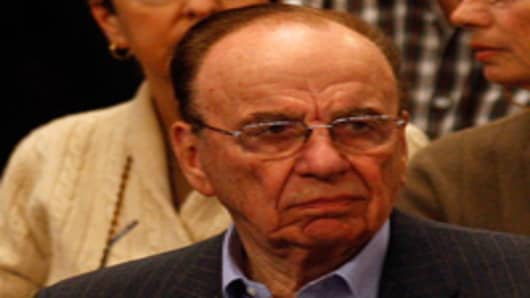The officer leading a police investigation into Rupert Murdoch’s British newspapers said on Monday that reporters and editors at The Sun tabloid had over the years paid hundreds of thousands of dollars for information not only to police officers but also to a “network of corrupted officials” in the military and the government.
The officer, Deputy Assistant Commissioner Sue Akers, said that e-mail records obtained by the police showed that there was a “culture at The Sun of illegal payments” that were authorized “at a very senior level within the newspaper” and involved “frequent and sometimes significant sums of money” paid to public officials in the Health Ministry and the prison service, among other agencies.
The testimony was a sharp new turn in a months-long judicial investigation of the behavior of Murdoch-owned and other newspapers, known as the Leveson inquiry. It detailed financial transactions that showed both the scale and the scope of alleged bribes, the covert nature of their payment and the seniority of newspaper executives accused of involvement.
The testimony may prove damaging to the News Corporation , the American-based parent of Mr. Murdoch’s media empire, if it gives ammunition to the F.B.I. and other agencies that are investigating the company for possible prosecution under the Foreign Corrupt Practices Act.
Until now, the Leveson inquiry delved primarily into questions of unlawful accessing of private voice mail and e-mail by tabloid journalists. That scandal that forced the company to shut down The News of the World, Mr. Murdoch’s flagship Sunday tabloid, in July 2011; it was replaced last weekend by a new Sunday versionof The Sun, which published its first issue hours before the latest hearings of the Leveson inquiry. In a statement, Mr. Murdoch, the head of News Corporation whose British subsidiary owns The Sun and other major newspapers here, did not specifically deny the allegations made by Ms. Akers. Rather, it focused on the company’s response: “As I’ve made very clear, we have vowed to do everything we can to get to the bottom of prior wrongdoings in order to set us on the right path for the future. That process is well underway. The practices Sue Akers described at the Leveson inquiry are ones of the past, and no longer exist at The Sun. We have already emerged a stronger company.”
In recent weeks, a number of senior journalists from The Sun have been arrestedon suspicion of making illegal payments to officials, and Ms. Akers said that the activities had been carried out by “the arrested journalists.”
Ms. Akers said that the payments from The Sun went far beyond the occasional lunch or dinner, with one public official receiving more than $125,000 over several years, and a single journalist being allocated more than $238,000 in cash to pay sources, including government officials.
It was clear from references in the e-mail messages — to staff members’ “risking losing their pension or job” and to the need for “tradecraft” like keeping the payments secret or making payments to friends or relatives of the officials — that the journalists in question knew that the payments were illegal, Ms. Akers said.
“Systems have been created to facilitate such payments whilst hiding the identity of the officials receiving the money,” she said. “The e-mails indicate that payments to ‘sources’ were openly referred to within The Sun, with the category of public official being identified, rather than the individual’s identity.”
She added: “Some of the initial e-mails reveal, upon further detailed investigation, multiple payments to individuals of thousands of pounds. There is also mention in some e-mails of public officials being placed on ‘retainers,’ and this is a line of inquiry currently being investigated.”


